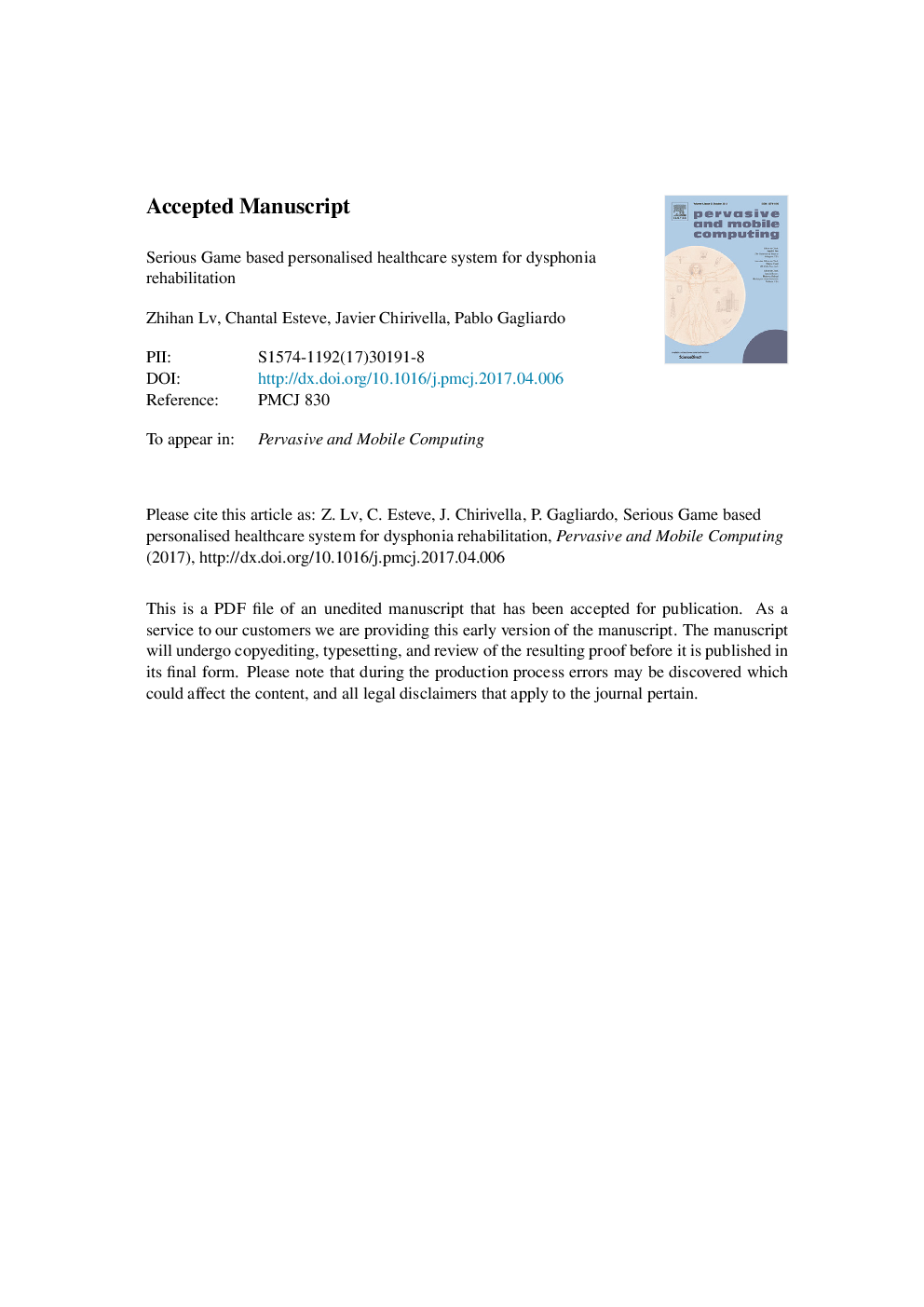| Article ID | Journal | Published Year | Pages | File Type |
|---|---|---|---|---|
| 4957388 | Pervasive and Mobile Computing | 2017 | 41 Pages |
Abstract
An assistive training tool for rehabilitation of dysphonia is designed, developed and iteratively evaluated and optimized according to the practical clinical needs. The assistive tool employs serious games as the attractive logic part, and running on the tablet with normal microphone and/or Kinect2 as voice input device. The patient is able to play the game as well as conduct the voice training simultaneously guided by therapists at clinic, while not be interfered, or do rehabilitation exercise independently at home. The voice information can be recorded and extracted for evaluation of the long-time rehabilitation progress. This paper outlines a design science approach for the development of an useful software prototype of such a tool. Both therapists and sufferers have provided earnest suggestions for the improvement. Seven pitch estimation algorithms have been evaluated and compared with selected patients voice database. A series of benchmarks have been generated during the evaluation process for technology selection. Finally, a refined emotion wheel questionnaire is designed to evaluate the controllability and the happiness.
Keywords
Related Topics
Physical Sciences and Engineering
Computer Science
Computer Networks and Communications
Authors
Zhihan Lv, Chantal Esteve, Javier Chirivella, Pablo Gagliardo,
